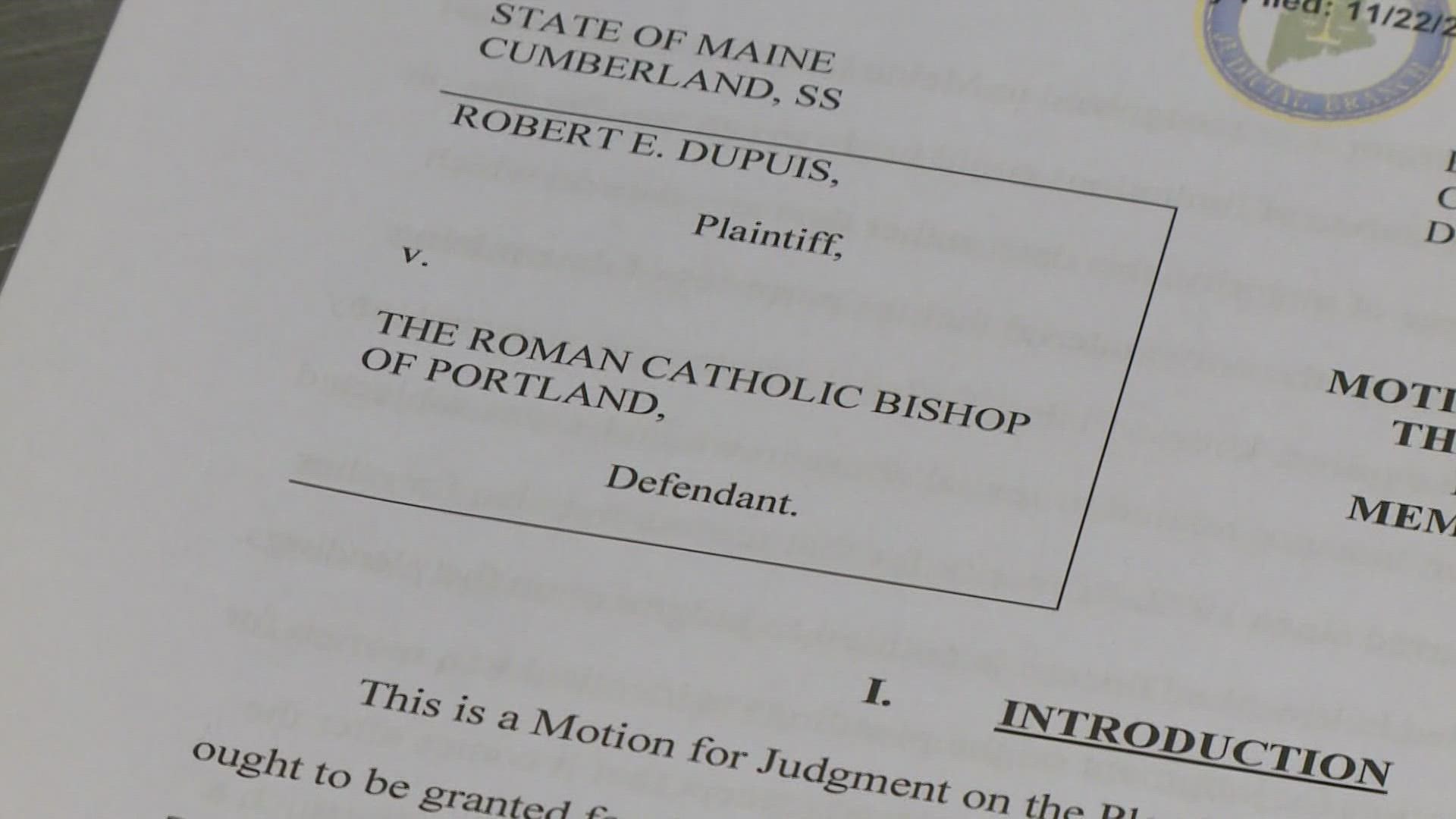MAINE, USA — The law firm representing more than a dozen alleged victims of child sexual abuse by leaders in the Roman Catholic Diocese of Portland is pushing back against efforts to dismiss the cases.
On Tuesday, attorneys with the firm Berman & Simmons, which represents 13 clients that have filed complaints of child sexual abuse, filed an opposition to a motion for judgment.
It comes after the law firm Petruccelli, Martin, and Haddow, which is representing the Roman Catholic Diocese of Portland, filed a motion in late November 2022 in an effort to dismiss the cases, alleging the church would have an unfair disadvantage in defending clients.
"The diocese is adding insult to injury by trying to dismiss these claims," attorney Michael Bigos of Berman & Simmons said.
Bigos discussed the latest court filings with reporters Wednesday morning.
In 2021, the Maine Legislature passed a new law that removed the statute of limitations on child sexual abuse.
NEWS CENTER Maine did not receive a response Wednesday from the Roman Catholic Diocese of Portland, or Petruccelli, Martin & Haddow. The complaint filed on Nov. 22 claims that under the new law, the firm would be disadvantaged in defending its clients.
"If this statute is determined to be retroactively applicable, even if subject to case-by-case equitable disallowance, there is a large but unknown number of potential cases reaching back decades against all youth-serving organizations. In every one of those cases to a material degree, although the details may differ, the organization will be at a substantial disadvantage in effectively defending against these claims, particularly if the human perpetrator has died, and particularly if the supervisory personnel of the organization have died, moved away, or become incapacitated," the motion filed by Petruccelli, Martin & Haddow says in part.
However, those working to find justice for the alleged victims say their clients are the ones who have been disadvantaged.
"We say, that this law levels the playing field, and there should be no advantages to either side in a court of law. So to claim an unfair disadvantage, we say our clients have been unfairly disadvantaged, and this gives them a fighting chance," Bigos said.
Bigos said he and his team are confident that they'll be successful in their efforts to continue seeking justice for alleged victims.
"We believe that the new law will be applied to institutional defendants who were the employers of the perpetrators of abuse. Those institutional defendants, including the Maine Catholic Dioceses, knew they were creating a risk, and in some cases knew were perpetrating abuse against their parishioners," Bigos said.
According to Bigos, the firm representing the diocese will be able to offer a response to the latest opposition to the original motion. Bigos said oral arguments are expected to take place Jan. 31, and a court ruling would come in the weeks, or possibly months following.

